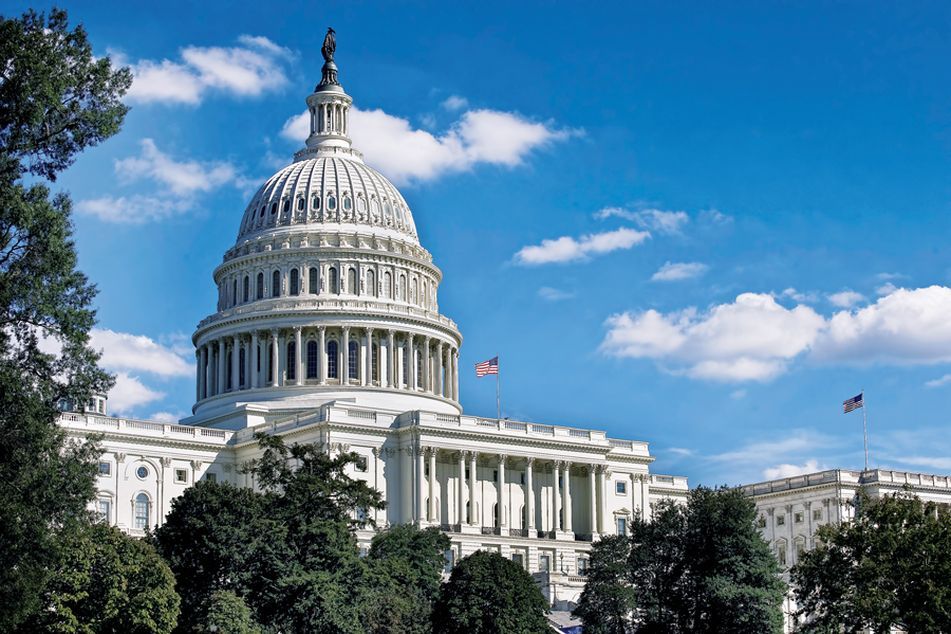Legislation affecting advisers may fall victim to tight Capitol Hill calendar

Clock, partisan divisions could stymie adviser regulation reform, HSA contribution limit increase
Legislation that would reform how advisers are regulated, increase contribution limits for health savings accounts and strengthen retirement security could fall victim to a tight congressional calendar or partisan divisions this fall.
In late July, before departing for its summer recess, the House approved a bill that would require the Securities and Exchange Commission to change the way it assesses the impact of its rules on small investment advisory firms. It also passed legislation that would increase the contribution limits for health savings accounts.
Next week, House leaders are expected to introduce a so-called Tax Reform 2.0 bill that would encourage the use of annuities in 401k retirement plans, among other retirement-security provisions.
The fate of those measures depends in large part on whether the Senate has the time and bipartisan will to address them. The number of business days remaining in the congressional session is dwindling, and the Senate priorities are federal spending legislation and the Supreme Court nomination of Brett Kavanaugh.
A major challenge facing the adviser-related legislation is a “truncated runway,” said Jason Rosenstock, a partner at Thorn Run Partners.
Here’s a rundown of the prospects for the bills:
Investment Adviser Regulatory Flexibility Improvement Act
Chances: Slim
The Investment Adviser Regulatory Flexibility Improvement Act is one of 32 that comprise the JOBS and Investor Confidence Act that the House approved 406-4. But the Senate Banking Committee may not have the appetite to take up the measure, which also includes a provision to change the definition of an accredited investor.
“Although we remain hopeful, it is looking less than likely that that whole package of bills will be considered by the Senate,” said Neil Simon, vice president of government relations at the Investment Adviser Association. “I don’t see a lot of interest in the Senate in considering separately any of the components of this 32-bill package.”
HSA legislation
Chances: 6-5 pick 'em
One of the HSA bills that the House passed in late July, H.R. 6311, would almost double the contribution limit for the vehicles to $6,750 for individuals and $13,500 for a household. It was approved, 242-176, with the support of 12 Democrats.
That may not translate to enough Democratic support in the Senate to overcome the 60-vote filibuster threshold. Many Democrats have asserted that HSAs — which allow for tax-free build up of funds to cover medical expenses that also can serve as retirement-savings tool — mostly benefit wealthy people.
Advocates maintain some hope that HSA contribution-reform could be included in must-pass legislation.
“The chances are 50-50 on raising contribution limits,” said Roy Ramthun, president of HSA Consulting Services. “I can see cases where it’s likely to move and cases where it’s less likely to move.”
Retirement Enhancement and Savings Act
Chances: 60-40
Next week, the House Ways and Means Committee is expected to begin work on Tax Reform 2.0, a measure that could include the Retirement Enhancement and Savings Act. That bill would encourage the use of annuities in 401k plans and allow small businesses to band together to offer 401k plans to their workers, among other provisions.
“That is a positive sign that the House is focusing on retirement security issues,” said Paul Richman, vice president of government affairs at the Insured Retirement Institute.
Two years ago, the Senate Finance Committee approved RESA, and it was re-introduced this year by the panel’s chairman and ranking member. Last week, President Donald J. Trump signed an executive order designed to help more workers save for retirement.
The momentum for retirement policy is raising hopes that legislation will make it to Mr. Trump’s desk this year.
“I’d really like to think it is something we could get done before the end of this Congress,” said Chris Spence, senior director of federal government relations at TIAA.
Even if bills die this fall, getting this far will give them a boost when they’re re-introduced next year in the new Congress.
“You’re not starting from ground-zero,” Mr. Simon said.
Learn more about reprints and licensing for this article.








